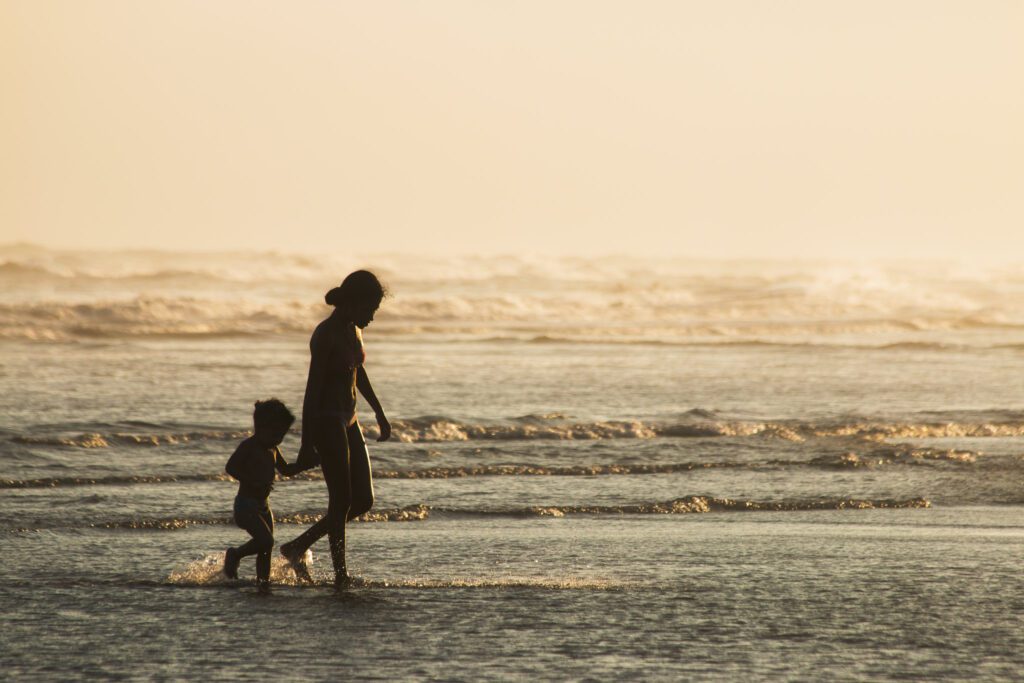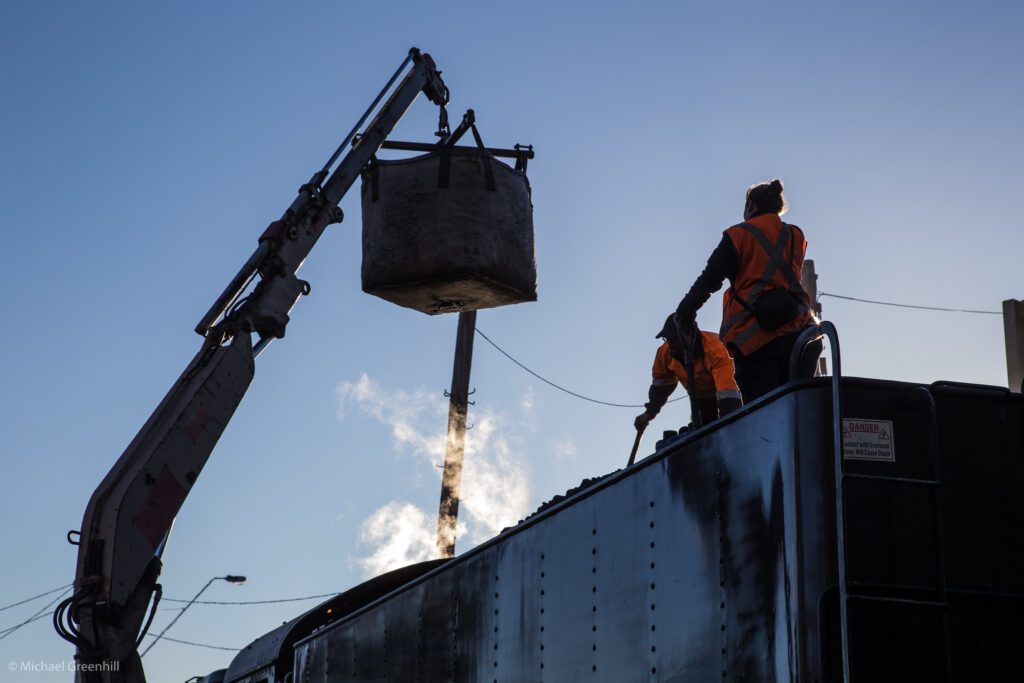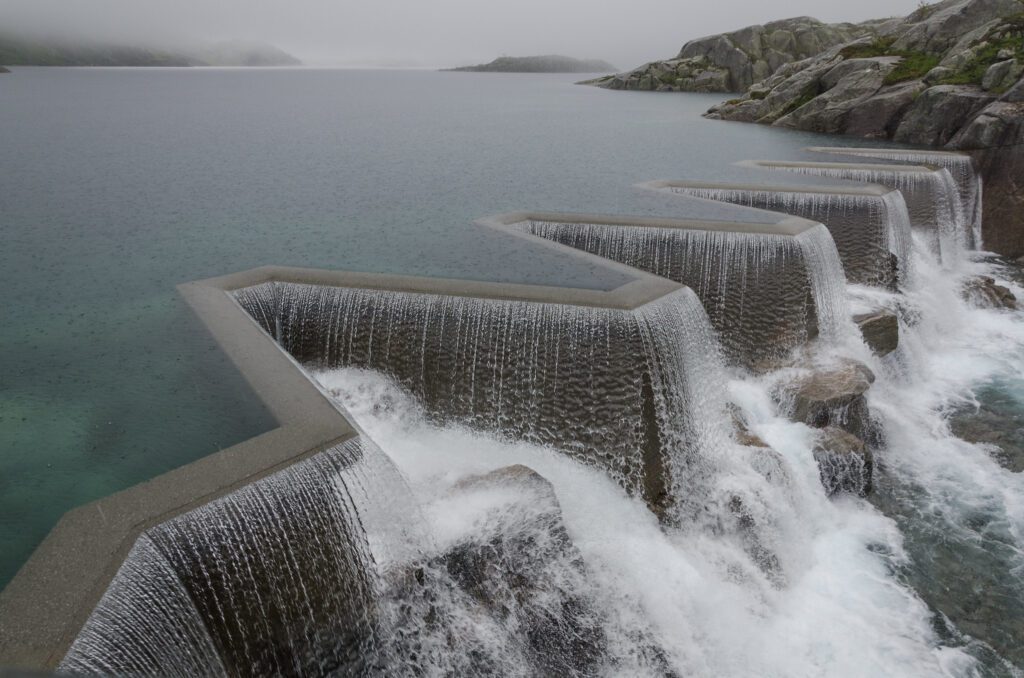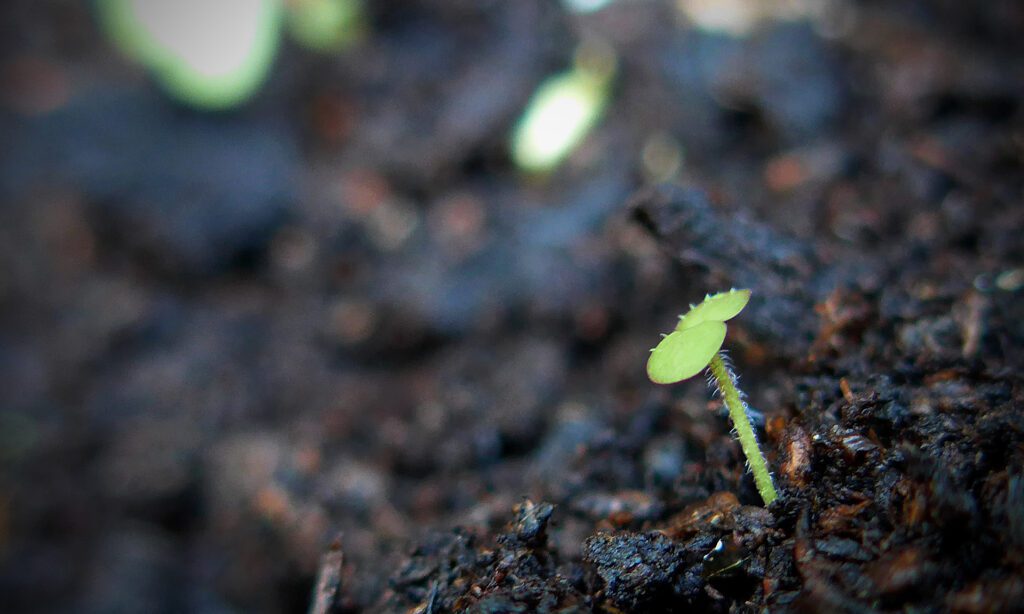


It’s a matter of math: Bigger families mean more carbon emissions.
By Carter Dillard, Independent Media Institute
6 min read
Having the opportunity to write in the New York Times about having kids during the current climate crisis is a major opportunity to do good, by highlighting reforms that can promote smaller families as one of the most impactful long-run ways to reduce emissions and enhance equitable investments in each child (through things like baby bonds) to help prepare them to deal with the consequences of climate change in the future.
New York Times columnist Ezra Klein recently had that opportunity, but that’s not the opinion piece he ended up writing (“You’re Kids Are Not Doomed,” June 5, 2022), and many are disappointed.
Instead, Klein did what Elon Musk, Mitt Romney, many growth-minded economists and dozens of other relatively wealthy white men have done. He pushed people (women, actually) to have kids. Instead of offering a nuanced response to the problems, Klein framed the issue as a simple idea about having kids, and then urged people to go forward and have them.
Who benefits from that advice, which many studies show is the worst way to exacerbate the climate crisis? The investor class, according to Nobel laureate Steven Chu. A class that, according to another economist, ignores the need to stabilize the human population at a much lower level than what exists today.
Klein gave it away when he said: “This is a vision of more, not less.” Does he mean more consumers, workers, and taxpayers who heighten the pyramid scheme that benefits the wealthy class? His recipe for the future is simply to ensure more of the same system that created the crisis, where a few influence the fate of many, and risk the worst of outcomes for generations to come.
Forget what the climate crisis will do to future generations and just consider more immediate issues that most men who push women to have children miss. In the United States alone in 2019, state agencies identified an estimated 1,840 children who died as a result of abuse and neglect—an average of five children a day. Internationally the number of children “exposed to violence” could be as high as 1 billion. To ensure a better future for the children, we need to create a conducive environment to help protect them. We need to collectively plan, not push.
Urging people to just have kids is especially surprising for Klein, who routinely champions veganism and animal rights. Given that a small percentage of people will change what they consume to protect animals, he is undoing with one hand what he claims to be doing with the other. Few animals will benefit from the arrival of more humans on the planet. Human activity has already “shrunk wildlife populations by 60 percent.”
Instead of an anthropocentric view of the world, which mostly benefits the few, we need to look at a reformative ecocentric view that benefits everyone. The most thoughtful and caring people are not having kids because of the harm they will suffer today, because of a crisis fundamentally created by others having kids without considering the long-term effects of their choices. Simply urging people to have kids exacerbates this situation: Human population growth is a fundamental driver of the Anthropocene. It also continues a centuries-long process of growth in which humans have slowly traded consensual political relations for exploitative commercial ones, based on the fallacy that having kids is a more personal choice that parents have the right to make rather than an interpersonal choice involving society.
Why not promote a climate-responsive change in culture that urges parents to show readiness to delay having kids and have smaller families, as well as promote redistribution of wealth to offset childhood inequity? Why not urge greenhouse gas emitting people in the United States to have fewer kids, and to invest instead in protecting children abroad—through adoption and otherwise—who are at imminent risk of starvation because of our climatological impacts?
This could also help eliminate the massive and growing gap between Black and white kids in the United States via wealth transfers, and ensure birth conditions that are at least consistent with the United Nations Convention on the Rights of the Child? Certainly now would be a good time to question the fundamental power structure, and nothing is more fundamental than how we see our species relative to others, or our position in the political hierarchy relative to other persons, whether we are born poor or rich, for example. Why see those relations as commercial ones, rather than as a chance to reverse birth destiny and create true equality of opportunity?
The climate crisis was created by a universal family planning model devoid of the need to protect nonhuman animals and nature, to ensure birth equity or a fair start in life, and to have children for functional democracies. Political scientists, like Leah Stokes, whom Klein cited, missed this point. Urging people to have more kids because one might become a Greta Thunberg, and thus solve the problem created by the act of having so many kids, is an exemplary idea of that thought process. The costs of Stokes’ and other people’s mistakes are astronomical and climbing. The crisis means we should change that model. Klein recommends nothing of the sort. Instead, we get cliches: “To bring a child into this world has always been an act of hope.” And hyperbole: “I don’t just prefer a world of net-zero emissions to a world of net-zero children.” And naivete: “If the commitments world governments have made since the Paris climate accord hold, we’re on track for a rise of 2 degrees or even less.” He should know that non-legally binding commitments are toothless, and ultimately, meaningless.
Still, Klein, his children, and many of the people he interviews benefitted and continue to benefit from an unsustainable system of growth that places its costs and suffering on others, thoughtful people whose right to have children has been impacted by others, and future generations who will suffer the loss of the natural environment that allowed past generations to flourish. There is a strong baseline argument that recovering those costs from the wealthy and using those resources to institute post-climate change family reforms described herein—incentivizing eco-socially restorative families—is the most effective long-run way to do good today. There is an increasingly accepted argument that such reparations existentially precede and thereby override property rights (the majority of rights holders are future generations), enabling people to seize the wealth as recompense.
And while Klein’s advice will go to benefit the pyramids of power described by the Nobel laureate Steven Chu above that created by people like former U.S. President Donald Trump and Russian President Vladimir Putin, reparations that limit and decentralize their power—per one recent peer-reviewed article—may be our best long-term hope for true democracy. That decentralization must address the wealth gap and include a shift to an equitable socioeconomic system that represents and empowers women and children.
That is the fundamental power shift that our species, from people who are animal advocates to the conservative National Review (which sides with Klein), is evading, perhaps because it is truly fundamental. That’s all the more reason to do it.
One question remains: How will Ezra Klein, Elon Musk and Mitt Romney pay for those costs?
###
Carter Dillard is the policy adviser for the Fair Start Movement. He served as an Honors Program attorney at the U.S. Department of Justice and served with a national security law agency before developing a comprehensive account of reforming family planning for the Yale Human Rights and Development Law Journal. See his recent EFL pieces on NationofChange, EcoWatch and iEyeNews.
Take action…

Children petition Australian government to honor Paris Agreement, give up coal
“The UN Environment Programme reports the targets offered up by countries, including Australia, are too low to keep global warming under 1.5° Celsius. The reason why children are organizing this petition is that we can’t vote and climate change is going to have a bigger impact on our generation. We want to have our voices heard—the voices of the future. We, the children of Australia, therefore call on the Commonwealth Government of Australia to commit to renewable energy and a climate policy that contributes to stopping climate change and honors the nation’s commitment to the Paris Agreement and the Green Climate Fund. More coal is not going to help. We hope that you consider us and our future in your policy-making.” —Ella-Mei Graham, Change.org
Sign Ella-Mei’s petition urging Australia to honor its commitment to the Paris Agreement.
Letter to the editor…

Dear Earth | Food | Life,
Though big dams are generally more destructive than beneficial (“10 Reasons Why Hydropower Dams Are a False Climate Solution,” Josh Klemm and Eugene Simonov, EFL/CounterPunch, April 8, 2022), so-called “microhydro power” can be both sustainable and useful. Microhydro is small-scale and suitable for local use, but not utility-scale. The installations often do not require any dam at all, or at most a low dam across which fish and other animals can easily pass. The idea is to collect some of the stream flow at a higher elevation and divert it through a pipe to a generator at a lower elevation, from where the water is returned to the river. Obviously, only a portion of the stream is diverted so the stream continues flowing free, just with somewhat less water. Droughts would make microhydro useless, but floods would have no impact on a well-designed system.
We need to use as many alternatives for clean energy as possible, and not eliminate any alternative that seems viable. In addition to microhydro, we should also consider tidal, wave, and ocean current systems, though these also have issues. Tidal power in particular often requires damming a bay or estuary, which is as destructive as a freshwater dam or even more so. Wave and current systems may be preferred, but these also have their own set of environmental impacts. These are all currently small-scale systems, but then again, so is rooftop solar. Every little bit helps.
Fusion is the holy grail of clean energy, and it looks now like fusion is coming, maybe in time, to help us as quickly as any other development. Fusion is the best utility-scale form of clean energy because the footprint is so much smaller than solar or wind. Finally, though it is unpopular with many environmentalists, burning non-fossil methane for energy actually makes sense if the methane is going to enter the atmosphere anyway. This does not include fracking or drilling of course but does include methane from decomposition and possibly methane bubbling up from methane sea ice. Burning the methane converts it into carbon dioxide more quickly than natural processes would, and methane is more potent as a greenhouse gas, so this is a benefit. Also, we get the energy that would otherwise have to come from other sources. This kind of methane use should not impact the environment or the Indigenous people.
Rejecting viable energy sources is foolish; it will only make fossil fuels more necessary if we insist on only using perfect energy systems—of which there are none, in fact. Both wind and solar require vast amounts of materials, the production of which causes plenty of environmental damage. Solar and wind projects are big—displacing the natural inhabitants of the area. Thermal solar projects require water and are often built in the desert: a bad combination. Wind turbines kill birds. Geothermal projects can cause earthquakes, limiting safe locations to unpopulated areas. Of course, drilling for fossil fuels also causes earthquakes, but let’s not advocate for more fossil fuels. The point is that every form of energy has adverse environmental impacts. Using less energy is therefore always a good thing. But human civilization requires energy, so we are going to have to make compromises.
—Larry Lawton, Aberdeen, Washington, April 12, 2022
Parting thought…

“Though I do not believe that a plant will spring up where no seed has been I have great faith in a seed. Convince me that you have a seed there, and I am prepared to expect wonders.” —Henry David Thoreau
Earth | Food | Life (EFL) explores the critical and often interconnected issues facing the climate/environment, food/agriculture and nature/animal rights, and champions action; specifically, how responsible citizens, voters and consumers can help put society on an ethical path of sustainability that respects the rights of all species who call this planet home. EFL emphasizes the idea that everything is connected, so every decision matters.
Click here to support the work of EFL and the Independent Media Institute.
Questions, comments, suggestions, submissions? Contact EFL editor Reynard Loki at [email protected]. Follow EFL on Twitter @EarthFoodLife.